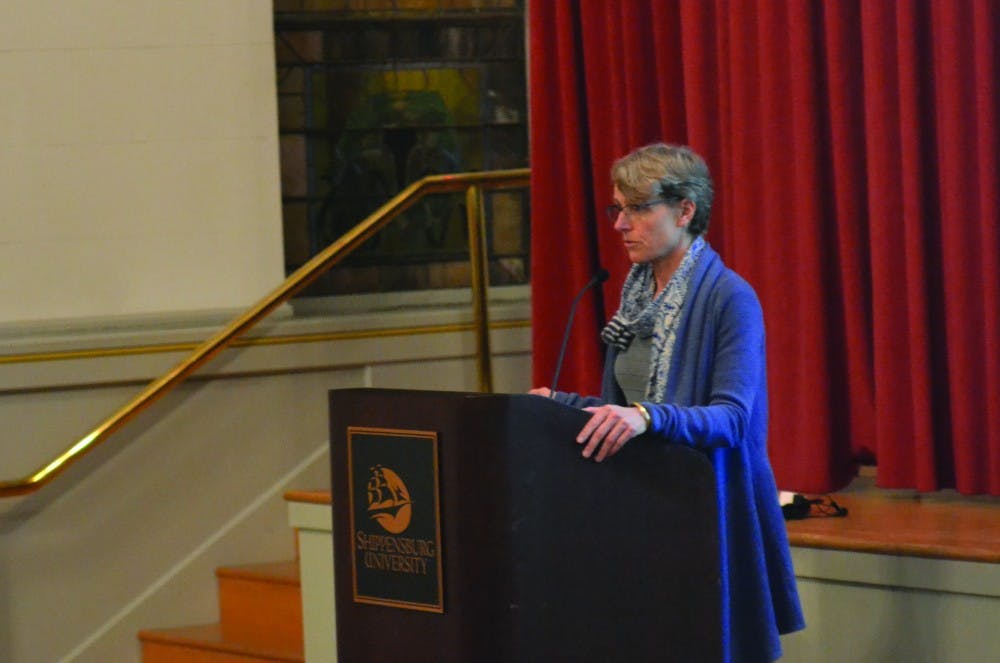The history club hosted its annual world history lecture Thursday, which featured the author of the book “Plutopia: Nuclear Families, Atomic Cities, and the Great Soviet and American Plutonium Disasters.”
“I was interested in the origins of the nuclear state,” said Kate Brown, a professor of history at the University of Maryland, Baltimore County.
In an attempt to obtain additional information for her book Plutopia, Brown traveled to Richland, Washington, and Ozersk, Russia, to study the history of nuclear weapons manufacturing
During the Cold War, U.S. citizens manufactured weapons-grade nuclear components. In order to attract workers, the federal government offered perks like free full-size houses and tax exemption to workers in the Hanford nuclear site, in Richland.
The community was completely devoid of democracy, according to Brown. Despite the complete lack of democracy, the citizens were reluctant to leave because of the amenities, offered by the government.
At its peak, the Hanford Site had a population of 16,000 people. The government subsidized amenities, which made the area fanatical about the American nuclear arms race. This admiration can be seen at Richland area school district, which made its school team name the Richland Bombers.
However, the nuclear fanaticism began to dissipate after a site janitor died from radiation poisoning, Brown said.
Because of the government’s decision to dump the radioactive waste into the Columbia River for nearly 30 years, the effects of Hanford’s radiation can still be felt today.
Hanford’s radiation has rendered the region unable to produce radiation-free food.
Every summer from 2006 to 2012, Brown traveled to the outskirts of Ozersk, where she studied Russia’s Hanford Site equivalent, the Mayak nuclear plant.
While in Ozersk, a closed city that only certain Russian citizens may enter, Brown interviewed Russians who were affected by the high levels of radiation.
Brown recounted her experiences and discussed the awkwardness associated with being a tourist in Ozersk.
“The white elephant in the room is, ‘I don’t want to eat the food you eat every day,’” Brown said.
Because of the radiation contamination, eating food grown in Ozersk and Richland is ill advised, Brown explained.
Following the presentation, a student told Brown she was “freaking out” about consuming radioactive produce.
“You should be freaking out about it; you’re eating radiation,” Brown said.





The Slate welcomes thoughtful discussion on all of our stories, but please keep comments civil and on-topic. Read our full guidelines here.